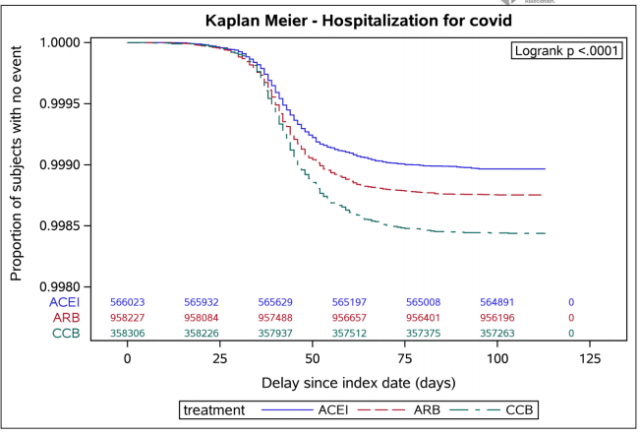What is the relationship between Antihypertensive drugs and COVID-19 risk?
- Normal Liver Cells Found to Promote Cancer Metastasis to the Liver
- Nearly 80% Complete Remission: Breakthrough in ADC Anti-Tumor Treatment
- Vaccination Against Common Diseases May Prevent Dementia!
- New Alzheimer’s Disease (AD) Diagnosis and Staging Criteria
- Breakthrough in Alzheimer’s Disease: New Nasal Spray Halts Cognitive Decline by Targeting Toxic Protein
- Can the Tap Water at the Paris Olympics be Drunk Directly?
What is the relationship between Antihypertensive drugs and COVID-19 risk?
- Should China be held legally responsible for the US’s $18 trillion COVID losses?
- CT Radiation Exposure Linked to Blood Cancer in Children and Adolescents
- FDA has mandated a top-level black box warning for all marketed CAR-T therapies
- Can people with high blood pressure eat peanuts?
- What is the difference between dopamine and dobutamine?
- How long can the patient live after heart stent surgery?
What is the relationship between Antihypertensive drugs and COVID-19 risk?
The initial hypothesis was that the use of inhibitors of the renin-angiotensin-aldosterone system was positively associated with the risk of COVID-19 pneumonia (COVID-19) , but recent evidence suggests an inverse association.
Recently, a research article was published in Hypertension, an authoritative cardiovascular journal.
The researchers aimed to investigate the use of angiotensin-converting enzyme inhibitors (ACE) and angiotensin receptor blockers compared with calcium channel blockers (CCBs).
Whether the risk of COVID-19 in patients treated with antihypertensive drugs (ARBs) varies by class of antihypertensive drugs.

From February 15, 2020 to June 7, 2020, the researchers followed 3 cohorts in the French National Health Insurance database, ACE inhibitor, ARB and CCB users, aged 18 to 80 years .
The researchers excluded patients with a history of diabetes, cardiovascular disease, chronic renal failure, or chronic respiratory disease within the past 5 years, and only considered patients with uncomplicated hypertension.
The primary endpoint of the study was length of stay for COVID-19. A secondary endpoint was time to intubation/death during hospitalization for COVID-19.

In a population of nearly 2 million hypertensive patients (ACE inhibitors: 566,023; ARB: 958,227; CCB: 358,306), 2,338 were hospitalized and 526 died or intubated due to COVID-19 during 16-week follow-up.
ACE inhibitor users and ARB users had a lower risk of COVID-19 hospitalization compared with CCBs users (hazard ratio 0.74 [95% CI 0.65-0.83] and 0.84 [0.76-0.93], respectively), intubation/ Lower risk of death. Patients using ACE inhibitors had a slightly lower risk than those using ARBs.
This large observational study may suggest that hypertensive patients treated with long-term ACE inhibitors or ARBs have a lower risk of COVID-19 compared with CCBs.
Reference:
Laura Semenzato.et al.Antihypertensive Drugs and COVID-19 Risk A Cohort Study of 2 Million Hypertensive Patients.Hypertension.2021.https://doi.org/10.1161/HYPERTENSIONAHA.120.16314
What is the relationship between Antihypertensive drugs and COVID-19 risk?
(source:internet, reference only)
Disclaimer of medicaltrend.org
Important Note: The information provided is for informational purposes only and should not be considered as medical advice.



